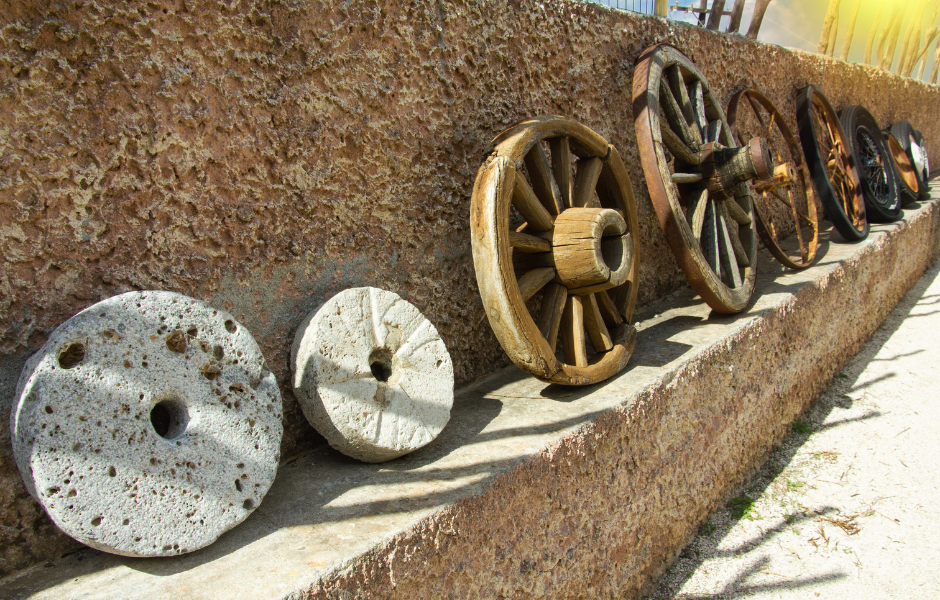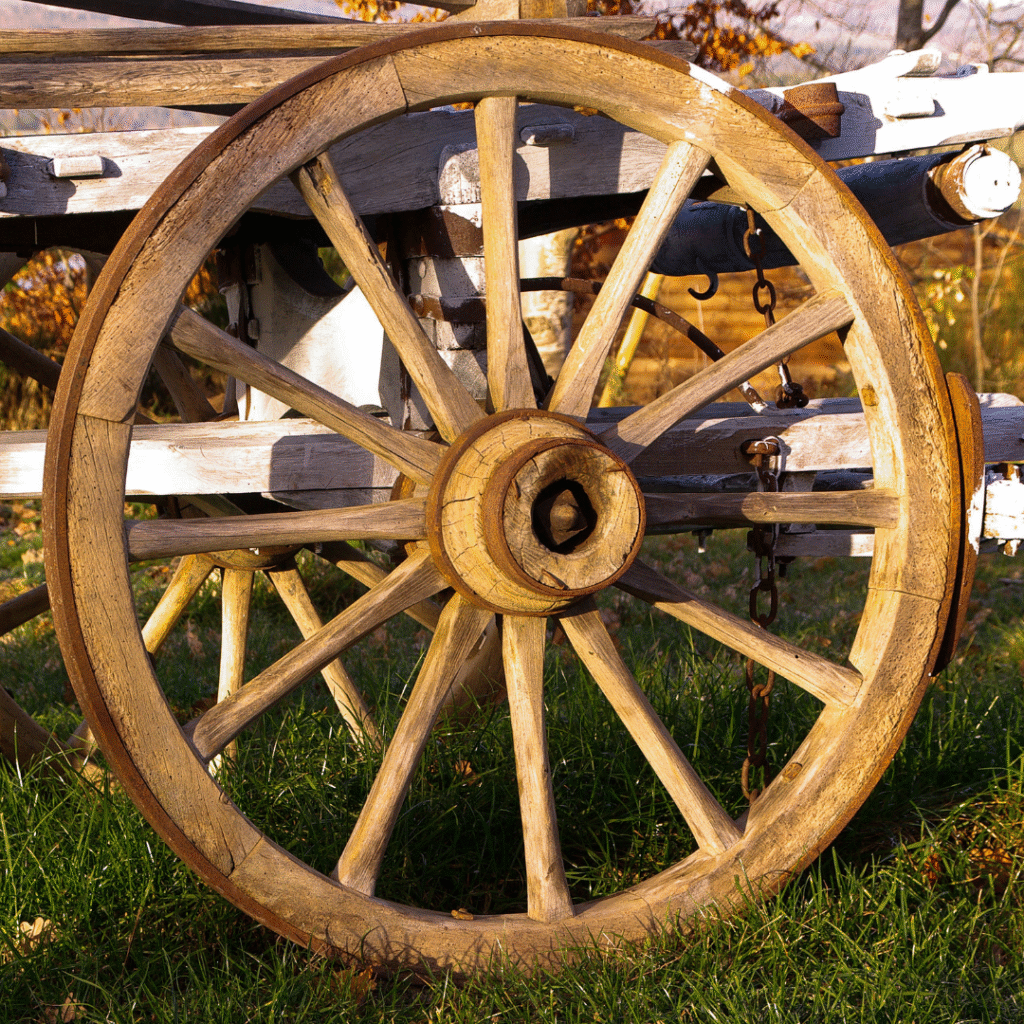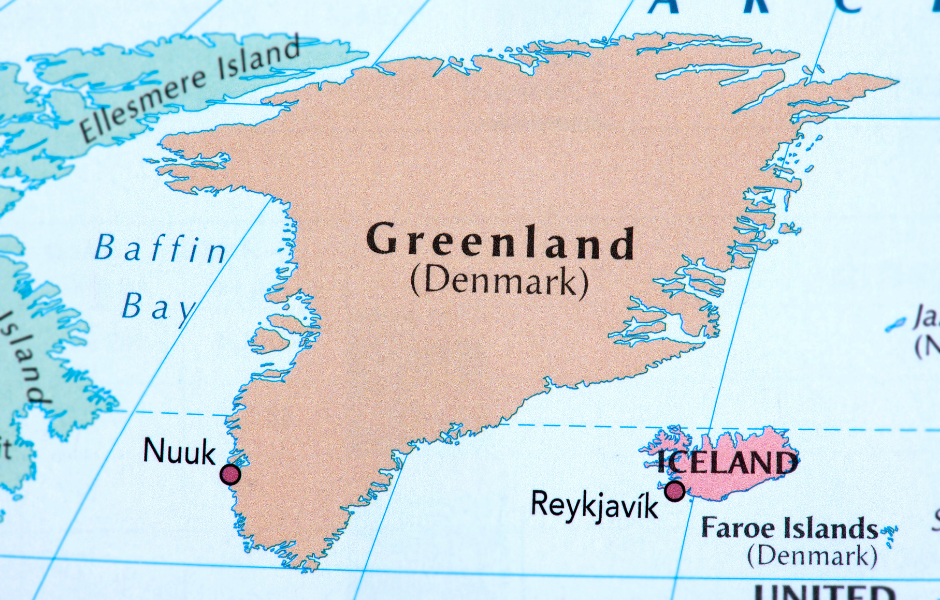
This children’s article, Who invented the wheel? The story of how the world started rolling, has been written for native English speakers and learners of English as a second or foreign language. It can help children build vocabulary, learn about one of the world’s greatest inventions, and discover how it changed human history. Written by Mark Pulley, a teacher and writer who creates fun and informative news articles for English learners.
An ancient invention
The wheel is one of the most important inventions in history, but no one knows exactly who invented it. The oldest known wheel was found in Mesopotamia (modern-day Iraq) and is about 5,500 years old. That’s older than the pyramids of Egypt!
At first, wheels were not even used for transport. Early people used them to shape clay into pots on “potter’s wheels.” Only later did someone have the clever idea to put wheels on carts.
From carts to chariots
Once people realised wheels could be used for transport, they quickly spread across the world. Wooden carts made it easier to carry heavy loads, and later, chariots gave ancient armies a speedy advantage in battle.
By around 2000 BC, wheels with wooden spokes (like bicycle wheels) appeared. These were much lighter than solid wooden wheels, which made travel and trade faster.
Why the wheel matters
The wheel made farming, travel, and trade far easier. It helped humans move goods and people more quickly than ever before. Without the wheel, it would have been much harder to build cities or connect different cultures.
Even today, wheels are everywhere: in cars, bikes, trains, aeroplanes, machines, and even tiny gadgets. Life without wheels would be almost impossible!
The wheel keeps turning
Over time, wheels have been made stronger and lighter, with rubber tyres, air inside them, and even special designs for racing. Scientists and engineers are still inventing new types of wheels, from space rovers on Mars to rollercoasters in theme parks.
So, while we may not know the name of the first person to invent the wheel, we do know this: their brilliant idea has kept the world moving for thousands of years.

Article vocabulary list
- Invention: A new creation or idea made by humans
- Mesopotamia: An ancient region in the Middle East where early civilisations lived
- Potter’s wheel: A wheel used to shape clay into pots
- Chariot: A light, two-wheeled cart used in ancient battles and races
- Spokes: The thin supports that connect the centre of a wheel to the outside rim
- Trade: The buying and selling of goods
- Tyres: Rubber coverings that go around wheels to make them safer and smoother
Comprehension questions
Just click the plus (+) to see the answer
1. Where was the oldest known wheel found?
A) Egypt
B) Mesopotamia
C) Greece
Answer: B) Mesopotamia
2. What were the first wheels used for?
A) Transport
B) Pottery
C) Games
Answer: B) Pottery
3. What is a chariot?
A) A modern racing car
B) A wooden house on wheels
C) A light cart used in ancient battles
Answer: C) A light cart used in ancient battles
4. Why were spoke wheels better than solid wooden wheels?
A) They were heavier
B) They were lighter and faster
C) They were made of gold
Answer: B) They were lighter and faster
5. Which of these is NOT an example of something that uses wheels today?
A) Cars
B) Aeroplanes
C) Clouds
Answer: C) Clouds

Mark is a writer and EFL teacher from England with eight years’ experience. He’s passionate about travel, sport (especially football), animals, nature, and history, and enjoys helping children explore the world through language and learning.




